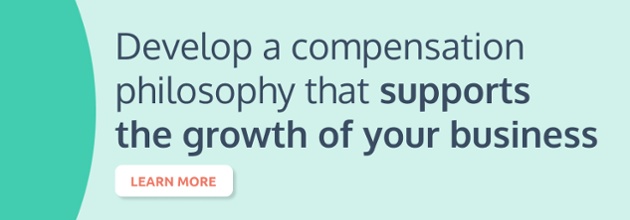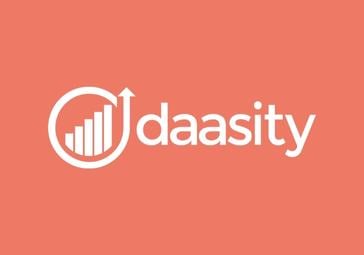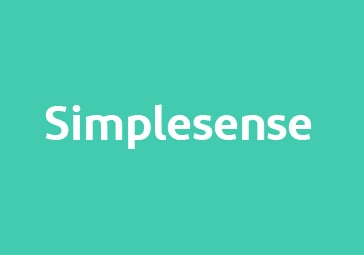When Sila introduced OpenComp to support its compensation management, it boosted recruiting success and enhanced the internal conversation about pay.
%20(1)-3.jpg?width=752&name=Customer%20Stories%20%20(1200%20%C3%97%20200%20px)%20(1)-3.jpg)


The Opportunity
By 2021, battery materials innovator Sila had filed more than 200 patents, drove the commercial launch of its anode materials, powering WHOOP 4.0, one of the most advanced fitness wearables, and was on its way to breaking ground on a new North American plant. But for fast-growing Sila, the compensation management software they relied on in earlier stages was not equipped to support its rapid growth and expansion. The company also saw its workforce grow more diverse as it began to hire additional executives and managers.
A red-hot job market also put more pressure on Sila’s existing compensation plan. “There was a lot of competition for talent, and we knew that workers were looking for competitive salaries and wages,” says Masha Rakhlin, People Lead at Sila. “We anticipated that declines could become a problem and wanted to stay in front of it. We realized that we would benefit from experts who understood compensation, who could educate us and help transition our model to one that would allow us to anticipate and model potential issues.”
“OpenComp taught us how to think about compensation with its compensation management software.”
Masha Rakhlin, Lead People @ Sila
The Activation
Recommendations from peers and similarly sized companies led Sila to engage OpenComp's compensation management software.
Sila partnered with OpenComp across the breadth of its solutions as the company’s needs ranged from burn modeling and messaging to salary ranges and manager training. Still, the company had a firm grasp on what it wanted from a partner. “OpenComp understood right away and didn’t try to sell us things we didn’t need,” Rakhlin explained.
"We needed help modeling equity burn, setting pay ranges, and developing training for managers. OpenComp delivered on everything.”
Masha Rakhlin, Lead People @ Sila
The OpenComp Difference
Sila worked with OpenComp’s platform and Compensation Advocacy Team to refresh its compensation system. Together, the partners used market data to reset Sila’s levels, develop salary ranges, and establish career progressions. These changes earned Sila a compensation management software platform that is transparent and scalable.
From sufficient to scalable
Sila earned a renewed trust in its approach to compensation after working with OpenComp, according to Kate Martin, VP of People & Culture at Sila. Its system, once more manual, now provides stability and consistency with operational ease. “We were always aligned with the market, but now the framework provides the transparency and structure that we need to engage our employees and scale efficiently,” she says.
The transformation arrived right on time: The new compensation management software enabled the company to increase its headcount by 36%, hiring 90 people in just over two quarters.
“Our compensation framework went from sufficient to scalable because of the work we did with OpenComp.”
Kate Martin, VP People & Culture @ Sila
Bolstered offer acceptance
Sila’s new compensation management software and approach helped enable its recent burst of growth, both from an operational perspective and by boosting recruiting. When Sila and OpenComp partnered, Sila had been concerned about future dips in its ability to close candidate offers given the competitive market environment. “OpenComp helped with that,” Demetrius Wallace, Sila's Head of Talent explained, "Our offer competitiveness was an important payoff from our work with OpenComp."
“Even in a tough market, we were able to improve our acceptance rate to 85% after using OpenComp's compensation management software.”
Demetrius Wallace, Head of Talent @ Sila
Boosted trust and transparency
As Sila overhauled its compensation management system, it developed a data-driven framework that is easy to explain and understand. “We do the work in a framework that is aligned with the market, and we’re able to communicate that framework very transparently,” Martin says. “That builds trust.”
As part of its work with OpenComp, Sila developed messaging and offered training to educate the company about the changes it was making. “OpenComp’s value-add was providing education to us that we could use with others,” Rakhlin notes.
Training and education have transformed Sila’s compensation culture. “Anyone who wants to come and talk about their compensation can — and we can explain it,” Martin says. “We’ve never had anything to hide, but this makes that clear.” Managers are also equipped to answer employees’ compensation questions, pointing them back to the company’s data-oriented framework.
“The conversation around compensation has become a lot healthier since we made this change. We can show any employee the reasoning behind their earnings.”
Kate Martin, VP People & Culture @ Sila
Scaling intelligently and equitably
As Sila continues to grow, it plans to further hone its compensation philosophy. “It’s really challenging to implement a performance-based compensation philosophy in a way that’s equitable, fair, and transparent, yet still focused on performance,” Martin says. “Performance has a subjective component — it requires judgment, management, and attention.”
Martin envisions Sila’s compensation philosophy growing more sophisticated by adding additional demographic analysis, a goal that would not be possible had it not reinforced its foundation with compensation science.
Sila’s accomplishments in its most recent work with OpenComp will allow Martin and her team to further explore OpenComp offerings, like the DEI Scorecard feature found in Compensation Design Studio. “Next time we do this it’s going to be so much easier,” she says. “We’ll go through the basics so easily, which will leave us with time and bandwidth.”
“Now that we have a foundational compensation software and system that works really well, we can get more mature and effective in how we layer on demographic elements to make sure our compensation is equitable and performance based.“
Kate Martin, VP People & Culture @ Sila
The Future
Sila’s internal growth fueled its achievements as an organization. It was named to Fast Company’s annual list of the world’s most innovative companies in 2022. It also closed $600 million in Series F funding to develop a new North American plant.
As Sila continues to grow, it plans to pursue both manufacturing and innovation. A singular vision unites this two-pronged goal: “We want to treat our people incredibly well while we’re achieving these great things,” Martin says.
Martin believes compensation is key to this ambition. “Compensation sets the tone for the culture,” she says. “It lays the foundation of the employer-employee contract, and bolsters the company’s credibility and authenticity.”
“Compensation is fundamental to the contract we have between our company and our employees. If we can’t get compensation right, a lot of things we try to do won’t be credible or authentic.”
Kate Martin, VP People & Culture @ Sila



